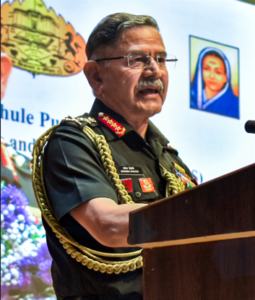COVID-19 Update: No cause for panic over JN.1 subvariant, says INSACOG Chief
New Delhi [India], December 18 (ANI): India’s COVID-19 situation remains under control, with an active caseload of 1,828 as of Monday. However, one death was reported in Kerala, where the JN.1 subvariant of the coronavirus was recently detected.

Dr NK Arora, the chief of INSACOG, a network of genomic laboratories that tracks genomic variants of the virus, said that the death was not caused by the subvariant alone but by multiple underlying health conditions.
“The deceased had severe comorbidities like heart, lung, and kidney diseases. The primary cause of death was attributed to these conditions, not solely to the JN.1 subvariant,” said Indian SARS-COV-2 Genomics Consortium (INSACOG) Chief Dr NK Arora.
On genome sequencing in other states, he said, “No cause for panic (over JN.1 subvariant). The number of samples is less but these are being collected from all the states.”
Dr Arora emphasised that “INSACOG is closely monitoring the situation, studying the epidemiology and clinical behaviour of the virus.”
Earlier on Saturday, Dr Rajiv Bahl, Director General (DG) of the Indian Council of Medical Research (ICMR), stated in a statement issued by the Union Health Ministry that “a case of JN.1 subvariant of COVID-19 has been detected in Kerala as part of the ongoing routine surveillance activity by INSACOG.”
“The case was detected in an RT-PCR positive sample from Karakulam, Thiruvananthapuram, Kerala, on December 8, 2023. The sample was tested RT-PCR-positive on November 18, 2023. The patient had mild symptoms of influenza-like illness (ILI) and has since recovered from COVID-19,” he said.
The Union Ministry of Health is in regular touch with the State Department of Health, Kerala and monitors various points of entry.
Earlier on Saturday, ANI reported first about the Covid-19 subvariant JN.1 detected in Kerala, which is a descendant of BA.2.86.
The India SARS-CoV-2 Genomics Consortium (INSACOG), a network of genomic laboratories, has been actively monitoring the genomic aspects of COVID-19 in India.
JN.1 was first detected in September 2023 in the United States.
Meanwhile, in the wake of the surge in respiratory diseases and the new JN.1 COVID sub-variant, the World Health Organisation (WHO) said that the virus is evolving and changing and urged the member states to continue with strong surveillance and sequence sharing.
The global body also shared a video of its COVID-19 technical lead, Maria Van Kerkhove, who explained the reason for the recent surges and what precautions can be taken.




